I'm thinking of this as I'm home from a short hospital stay during which I shared a room with a fellow surgical patient who will be on an all-liquid diet for 21 days, clear liquids* only for the first week. It got me considering her options and my own. My diet isn't restrictive but is still limited by how I'm feeling; I couldn't tolerate a steak and loaded baked potato right now if you paid me.
Some meal planning guidelines for invalids come easy. If the doctor recommends clear liquids or no citrus fruits that's clear cut but if you're in charge of setting the menu without medical directives keep these things in mind. Invalid meals should be healthy, easy to digest, easy to swallow or chew as necessary, served at the right temperature for the food and/or the patient's preference.** Easy on the pocketbook, good for the whole family (meaning fewer separate dishes to prepare) and quick to prepare are things worth considering, too. Remember comfort foods may be as much about presentation as ingredients. Toast cut into triangles or cookie cutter shapes, applesauce sprinkled with cinnamon sugar, orange slices arranged in a sunburst on a small plate -- something mom used to make for them when they were small.
I have at least one cookbook devoted to invalid cookery and it's from modern times: Laurel's Kitchen Caring: whole food recipes for everyday home caregiving
fame. Robertson includes simple recipes like Ginger Tea which she recommends for relief of mild stomachache or headache, or for nausea, colds or fever. It's a standby at out house for mild stomach problems.
Ginger Tea
1 quart water
2" nub of peeled and thinly sliced gingerroot
Drop gingerroot into boiling water and simmer for 10 minutes. Strain and serve plain or with honey. Cool and keep extra in a jar in the fridge for a few days. Serve cold or reheat as needed.
-----
This one's in Robertson's book, too, but my mom's made this blend as a sore throat or light cough relief for years.
Lemon and Honey
Squeeze a lemon and stir in honey in an approximate equal amount, to taste; then add boiling water to make a cup. Sip to soothe throat. Add a shot of whiskey to an adult's cup for a hot toddy.
-----
For heartier fare, rice is a good choice. It can be served bland with just salt, pepper and maybe a pat of butter or you can tempt appetites with Robertson's Green Rice Casserole:
1 small bunch green onions or 1 small yellow onion, chopped
1 clove garlic
vegetable oil
2-1/2 cups cooked brown rice
1/3 cup chopped parsley
1/2 cup grated cheese (try swiss, mild cheddar, or Monterey jack)
2 eggs, lightly beaten
2 cups milk
3/4 to 1 teaspoon salt
Preheat oven to 350F.
Saute garlic and onion in oil until soft. Crush garlic with fork. Combine with remaining ingredients. Pour mixture into greased 2-quart casserole. Bake about 45 minutes, until set. Cool slightly if you want to slice it into squares.
Tailor it to diet needs--
Lower fat: Cut cheese in half, use skim milk. Sub 4 egg whites for whole eggs.
Vegan: Omit cheese, milk and eggs. Add plenty of sauteed mushrooms and chopped grilled bell peppers. Lighter dish -- delicious.
Bland, but good: Leave out sauteed onion and garlic, cosider substituting a preferred salt-free seasoning blend such as Mrs. Dash or Spike for salt.
-----
Robertson even includes a recipe for barley water. It's suggested for anyone with weakness, irritated digestive tract or sore throat.
Barley Tea
2 quarts boiling water
1/2 cup barley, whole-grain "naked" or hulled, but NOT pearl
3 cardamom pods (or 1/4 teaspoon ground cardamom)
Boil water in large saucepan. Wash barley in cold water and drain. Put it in boiling water and simmer actively about 30 minutes, until water is a deep pink and cloudy. Either strain it or let stand and then pour off the clear liquid. If desired you can add another quart of water to the barley and boil again, combining the liquid from both batches. You should end up with about 8 cups of barley tea but you can make it stronger or dilute as desired.
With mortar and pestle, finely grind seeds from cardamom pods and add to hot tea. Serve hot with honey or sugar. May store extra in refrigerator to reheat over the next couple of days as needed.
For more kitchen tips check out Tammy's Kitchen Tip Tuesday posts.
-----
*The test is, if you put it in a glass, you can see your hand through the glass. Water, weak black tea, weak herbal teas like chamomile or raspberry leaf, mild clear broth, and diluted apple juice can be appropriate.
**I can still remember ending up in the hospital overnight after a bicycle wreck as a young teen. No food since the previous morning and I thought I was starving. My mouth was filled stitches so I needed something soft or, even better, liquid and not too hot temperature-wise. Instead I was served a steaming (truly!) bowl of oatmeal, thin toast and canned orange juice. I couldn't eat any of it. The toast was dry and had to be chewed thoroughly, the juice was too acidic and by the time the oatmeal had cooled enough to try, the tray had been removed. I spent the next week eating all my food thru a straw. That was one of the few times I would have appreciated something like Carnation Instant Breakfast drink...



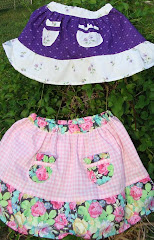


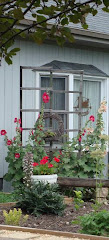


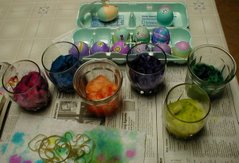
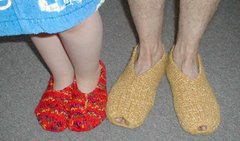
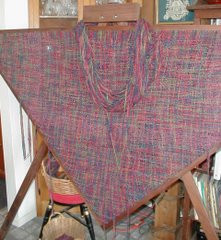
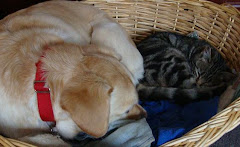
1 comment:
Thanks for reading along, Ruth. I'll try to keep it interesting so you'll check in often! :-)
Post a Comment